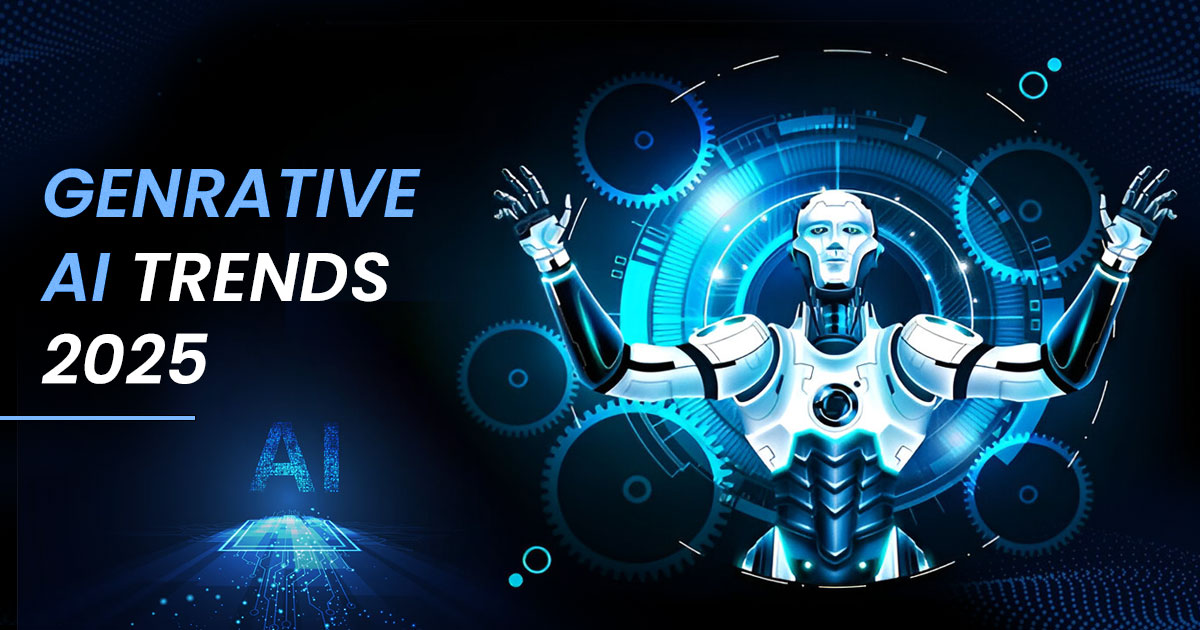The landscape of social media content has seen a tectonic shift with the rise of AI especially as we step into 2025. AI technologies have not just transformed the way content is created, curated, and consumed but have also redefined engagement and monetization strategies.
The infusion of AI into social media platforms has led to more personalized, efficient, and interlaced experiences, setting a new standard for content quality and relevance. In this article, we explore how AI will change the game of social media content in 2025 with its key roles from driving AI-driven content creation to boosting user engagement, ensuring content inclusivity, and optimizing content strategies with predictive analytics. What is Social Media Analytics? This question becomes crucial as we delve into the transformative impacts AI will have on these platforms.
AI-Driven Content Creation
The rise of AI-powered solutions has transformed the content generation landscape, enabling brands and individual creators to produce content more effortlessly and effectively. Tools such as Generative Pre-trained Transformer (GPT) and DALL·E have been at the forefront of this change, offering capabilities to generate text and visual content with limited human intervention.
These innovations, serving as prime examples of artificial intelligence, draw upon vast datasets to deliver content that is not only of high quality but also customized for distinct audience groups. Among these advancements, the best chatgpt plugins stand out, seamlessly integrating into content creation workflows to enhance efficiency and creativity without appearing promotional.
The advantages of AI-driven content extend to brands and individual creators alike. Brands can see costs and time spent on content slashed, enabling a deeper focus on strategy and user engagement. Individual creators are empowered to produce professional-grade content previously unavailable to them without significant resources.
Social media is rife with AI-created content, ranging from personalized news articles and targeted ads to creative visuals that inspire and enrapture. The singular value here is AI’s ability to analyze data and trends, and then apply those insights to creating content that immediately touches on the current interests and preferences of the audience, driving up engagement rates and building a closer bond between content and user.
Personalization and User Engagement
AI’s ability to assimilate and analyze data has changed the game for personalizing social media content. Where algorithms now can come pretty shockingly close to predicting what individual users most want to see, the data they find and the conclusions they draw lead to content that just performs better — it’s almost always exactly what audiences most want to see, and that falls directly in line with the current zeitgeist.
Platforms harness AI to analyze user interactions, such as likes, shares, and amount of time spent on certain types of content, which feed into algorithms that continuously refine the content individual users spend time on.
This makes social media unique, the experience is completely different for each user. TikTok’s For You page is a perfect example of this where after using the platform for even a small amount of time, you will see the content of fundamentally only the things you are interested in, having engagement rates skyrocket and the feature setting a new standard for social media platforms.
In addition to content curation, AI personalization spans personalized advertising, content recommendations, and even interactive chatbots that provide a more engaging and responsive user experience, with brands seeing a 20%+ increase in user interaction when they leverage AI for personalization. This has led to higher conversion rates of their campaigns due to the relevancy of the content or advertisement to the target audience.
2025: The Age of Inclusive Social Media Content
Thanks to AI, social media content will be more accessible and inclusive than ever in 2025, opening up new horizons for users across the globe.
The last half decade has seen phenomenal advances in AI technology, particularly when it comes to content translation and captioning. AI algorithms now allow platforms to automatically generate highly accurate captions and translation services in real-time, breaking down barriers for millions of users with hearing or language issues.
Services like YouTube and Facebook have both now incorporated AI to automatically span the globe with carefully crafted subtitles and accurate translations, without which the reach and impact of social media content would be hugely limited.
What’s more, AI has also allowed platforms to shift their focus toward inclusivity. By monitoring user interactions and feedback, AI tools help platforms and content creators to see where gaps exist in the representation and inclusivity of their content, prompting a much more concerted effort to create and promote content that represents a broad range of voices and perspectives.
As a result, a host of new AI-driven analytics tools are enabling brands to better understand and cater to wider audience segments than ever before, making the whole of social media a much more inclusive space for all.
Content Moderation and Ethical Considerations
As much as AI has been a boon for content creation and personalization, it also shoulders the critical task of content moderation. Social media platforms have increasingly turned to AI to identify and act upon content in violation of community standards, such as hate speech, misinformation, and harmful content. By continuously learning from massive datasets, these AI algorithms are increasingly able to identify such content, enabling platforms to act quickly and maintain a safe online environment.
Yet as they push the boundaries on AI for content moderation, ethical considerations and challenges come to the fore. The line between curbing harmful content and preserving free expression is a fine one. There is ongoing debate about the accuracy of AI in understanding context and nuance, and concerns about potential unfair censorship and suppression of free speech.
Platforms must therefore develop and refine their AI algorithms to be “fair, transparent, and accountable” and consider how to deal with these ethical dilemmas through human oversight.
Predictive Analytics and Strategy Optimization
One of the most transformative impacts of AI on social media content is its ability to generate predictive insights. Today’s AI tools can generate highly accurate predictions on future trends and user preferences by analyzing user behaviour, engagement patterns, and content performance.
As a result, content creators and brands can effectively “look around the corner,” optimizing their strategies to align with anticipated shifts in the social media landscape.
For example, AI-driven analytics can reveal emerging topics of interest, or forecast the best times to publish content across platforms for optimal engagement. These insights are a critical resource for content strategists seeking to maximize the impact of their efforts. Moreover, predictive analytics can inform content personalization at an individual level, suggesting topics, formats, or creative approaches that are likely to resonate with specific audience segments.
Brands that have embraced AI to apply predictive analytics to their social content have experienced remarkable results, including higher engagement and ROI for their campaigns. After all, the ability to anticipate and adapt to user preferences isn’t just something that enhances the user experience; it’s the key to more effective, more efficient content strategies.
Conclusion
As we continue to 2025, one thing is certain: AI has transformed social media content for good. Content creation has been turned upside-down, with personalization reaching new heights and accessibility, inclusivity, and safety becoming part and parcel of the social media experience itself. Ethical questions and the tricky question of how AI and human oversight will work together remain, though the potential benefits are monumental.
Looking ahead, AI is set to deepen its foothold in social media, with new tech on the way to better create, curate, and optimize content in ways even more sophisticated than we can currently imagine.
With platforms and creators set to lean into AI further, the future of social media content is not just more engaging and personal, but more inclusive and safer for all users. The journey of AI’s transformation of social media content is far from over, and we’ve only begun to scratch the surface of what it can do.







